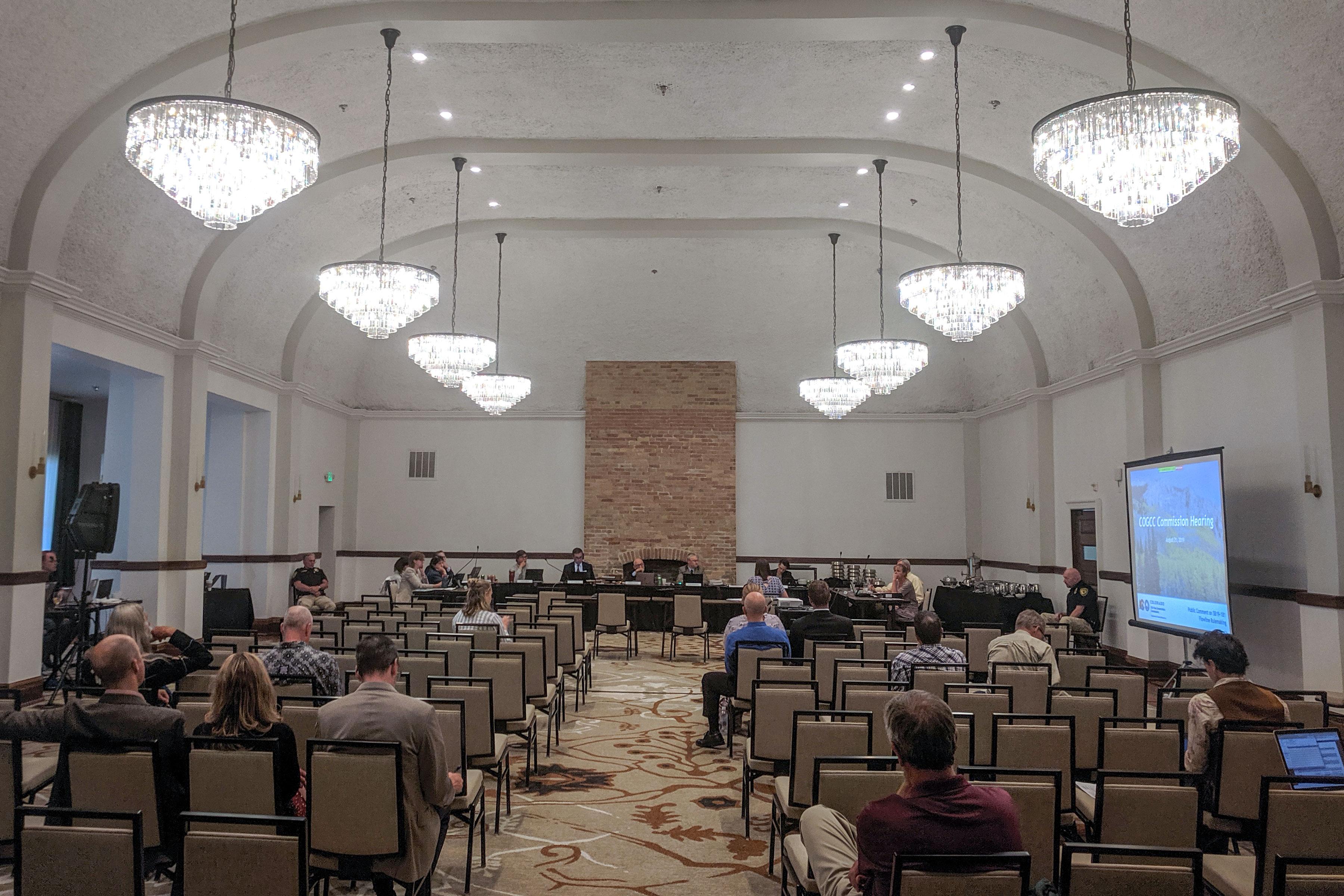
It’s a Colorado credo that the Western Slope is far different from the Front Range. But is it separate and distinct enough to deserve its own specific oil and gas regulations?
The question divided a recent meeting of the Colorado Oil and Gas Conservation Commission in Glenwood Springs. The regulators were in town to give presentations and hear public testimony ahead of the major overhaul of state oil and gas rules mandated by the passage of SB 19-181.
Colorado Democrats pushed the law through the legislature in April.
It makes public health and safety the top priority of state regulators. It also aims to give communities more control of the oil and gas development process.
In Northwest Colorado, 15 cities and counties have agreed to participate in the rulemaking process to ensure the regulations fit with the particular geology and culture of the region. The counties include Garfield, Delta, Jackson, Mes, Moffa, Montezuma,and Rio Blanco.The cities and towns involved are Craig, Collbran, Meeker, New Castle, Parachute, Rangely, Silt and Rifle.
It’s not yet clear if or how rules might differ from statewide standards.
Still, during the COGCC hearing, environmental and citizens groups objected to the move, saying it risks cutting the region out of stronger rules for the industry.
“Impacts are impacts,” said Emily Hornback, director of the Western Citizens Alliance for Community Action. “We would just encourage commissioners to make sure the rules that come out of this process protect all Coloradans equally, no matter which side of the state they live on.”
Garfield County is leading the coalition of communities in Northwest Colorado.
John Martin, a Republican county commissioner, said any regulations should account for the unique geology of the Piceance Basin, which underlies much of the region. Drilling in the area tends to bring up dry gas without liquids, rather than the oil or wet gas more often found on the Front Range. The region has a much greater density of federal land, which could overlap with state regulations.
“So there have to be different rules,” he said. “Doesn't mean they ignore the safety and health of everyone, but you have to have different approaches, and that's what we wish to do.”
Martin was also careful to separate his effort from Weld County, where commissioners formed their own energy department and voted to set their own oil and gas rules. Prior to the vote, the COGCC sent a letter to reassert state authority over drilling sites in the county.
“We don’t have to adversarial or be dominant over the state of Colorado,” Martin said. “What we’re doing is using our expertise and success to help guide the regulations.”
COGCC director Jeff Robbins said it’s too soon to say if his panel will heed that input — and write different rules for different oil and gas basins.
“The first part of successful rulemaking is the gathering of information, so we can get all the perspectives into the hopper,” he said.
The panel has plenty more input coming. The commission is scheduled to hold meetings in Boulder, Denver and Weld County over the next three months.









